The Power of Apples: A Nutritional Superstar
Apples, a humble fruit that has been enjoyed for centuries, are more than just a tasty snack. They offer a wide range of health benefits, from supporting heart health to boosting brain function. With their affordability and availability, especially during apple season, it's no wonder they have become a staple in many diets.
Promotes Gut Health
Apples are an excellent fruit for supporting gut health. A single apple contains around 1.8g of fibre, which contributes to the daily recommended intake of 30g. However, only four percent of UK adults meet this target. Apples are a great source of both soluble and insoluble dietary fibre, promoting regular bowel movements while supporting the growth of healthy gut microbes.
They also contain pectin, a type of soluble fibre mostly found in the peel. Pectin has prebiotic properties, acting as a food source for good gut bacteria, helping them flourish and grow. When these gut microbes feast on pectin, they produce short-chain fatty acids, which support the health of the cells lining the gut while reducing inflammation.
Each apple contains a whopping 100 million microbes, contributing to a healthy gut.
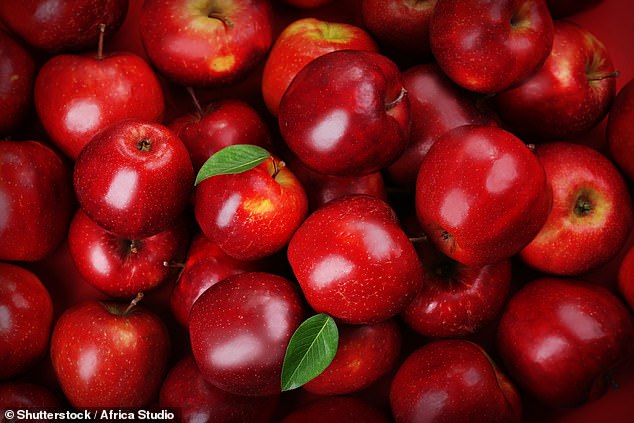
Slashes Diabetes Risk
After eating, blood sugar levels naturally rise. Some foods can cause spikes, leading to fatigue and brain fog. Insulin helps lower blood sugar by instructing cells to absorb glucose from the bloodstream. Apples have a similar effect.
Pectin forms a gel in the gut, slowing down how quickly sugar is released into the bloodstream. Apples also contain plant compounds called polyphenols, which may improve how the body uses insulin. Large population studies show that people who eat apples regularly are less likely to develop type 2 diabetes.

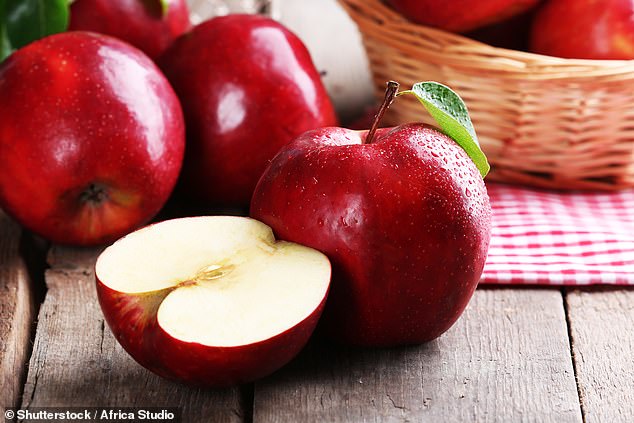
Supports Heart Health
While most fruits are beneficial for heart health, apples may have an edge. Research shows that those who eat the most apples have a lower risk of stroke, heart disease, and harmful inflammation compared to those with the lowest intake. This could be due to apples' rich concentration of pectin, which may reduce cholesterol absorption from the gut into the bloodstream.
The European Food Safety Authority advises that around 6g of pectin a day can help lower blood cholesterol levels. Other research suggests that polyphenols in apples offer protective effects by blocking signals that can trigger the narrowing of arteries, increasing the risk of cardiovascular events.
Promotes Weight Loss
There has been much discussion online about whether apples really are nature’s Ozempic, after a nutritionist made the claim in a viral TikTok. Experts believe there is some truth behind the phenomenon.
Dr. Katerina Petropoulou, an expert in metabolism and digestion at Imperial College London, explained that consuming foods high in soluble fibre, particularly pectin, found in apples, can mimic the effect of Ozempic by ensuring a steady release of gut hormones.
At around 70 calories each, apples can help with weight management if enjoyed instead of ultraprocessed snacks. These snacks can send blood sugar levels skyrocketing without signaling to the brain that we are full, resulting in overeating.

Slashes Cancer Risk
Eating apples may help prevent cancer, according to studies. Research suggests that polyphenols found in apples can help prevent cancerous cells from multiplying. Another study found that people who eat an apple a day were up to a third less likely to develop breast, lung, or mouth cancer.
Apples are also rich in vitamin C, which supports the immune system and fights cancer cell growth.
Boosts Brain Health
Apples can also support brain health and memory due to their rich quercetin count—a powerful flavonoid with antioxidant and anti-inflammatory effects that might help lower the risk of cognitive decline.
A review of 14 studies found that quercetin may even have some preventive properties against Alzheimer’s, though more research is needed. Polyphenols have also been shown to boost short-term memory by increasing the width of blood vessels in the brain, allowing more nutrients to reach the organ.
Pink Lady or Granny Smith?
While all apples offer numerous health benefits, some are more nutrient-dense than others. Granny Smith apples contain around 15.4g of sugar, while Pink Lady varieties have slightly more at 15.7g. Braeburns sit somewhere in between at 15.6g per apple.
All apples contain an abundance of health-boosting phytonutrients, which are plant chemicals that exert antioxidant benefits. For example, the red pigment in Braeburn apples is due to phytochemicals called anthocyanins.
However, while some apples may be slightly more sugary than others, variety is key. The more variety of apples we consume, the more health-promoting phytochemicals we will receive. Our gut microbes feast on these phytochemicals, and a diverse intake leads to a more diverse array of gut microbes, which is thought to be healthier, more robust, and more resilient to disease.
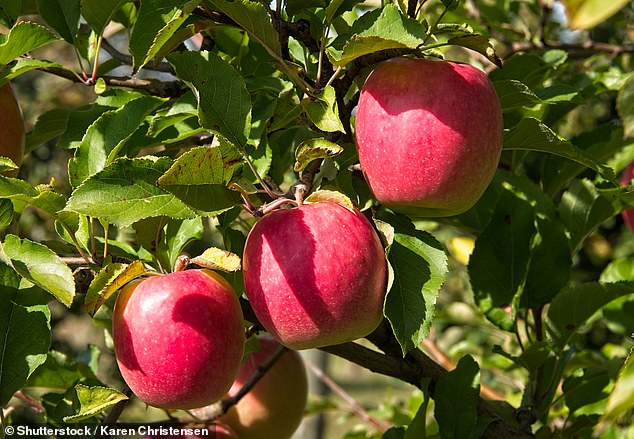
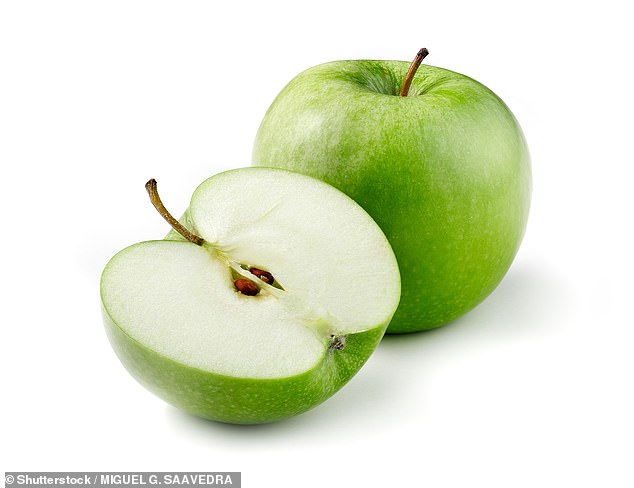
Organic or Not?
While organic apples come with fewer pesticide residues, cost and availability also play a role in our choices. Pesticide residues in food have been linked to heart problems, neurodevelopmental disorders, and several types of cancer. However, washing non-organic apples thoroughly can help minimize the risk of ingesting harmful pesticides and deliver a more wallet-friendly nutrient boost.
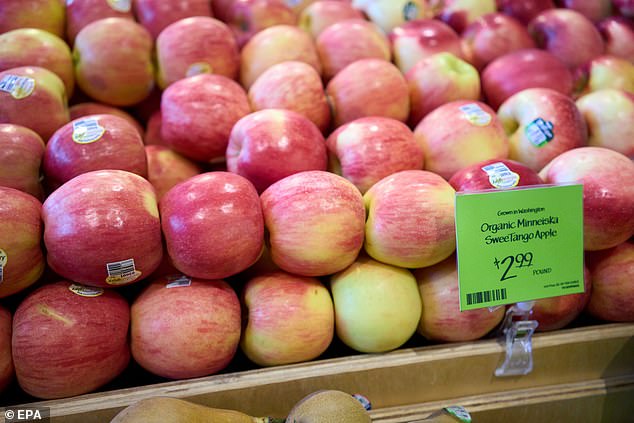
How to Add Apples to Your Diet
According to both nutritionists, the best way to eat apples is raw, whole, and unpeeled, given the vast majority of its fibre and antioxidant content is concentrated in the skin. Pairing apples with protein or fat, such as stewed apple with a spoonful of yoghurt or nut butter, will slow digestion even further, keeping energy levels steady.
Dipping apple slices in nut or seed butter, such as almond or pumpkin seed butter, provides protein and healthy fats. This combination helps to stabilise blood sugar levels while enhancing the absorption of fat-soluble nutrients. The crunchy texture of raw apples requires more chewing, which slows down our eating pace and can help promote feelings of fullness.

Stewed apple still provides fibre and may be easier on older people's digestion, but it's best to leave it unsweetened to keep blood sugar spikes at bay. Apples are also rich in vitamin C, which helps the body absorb non-haem iron from plant foods, so adding slices to a spinach salad with lentils or chickpeas will enhance iron uptake.